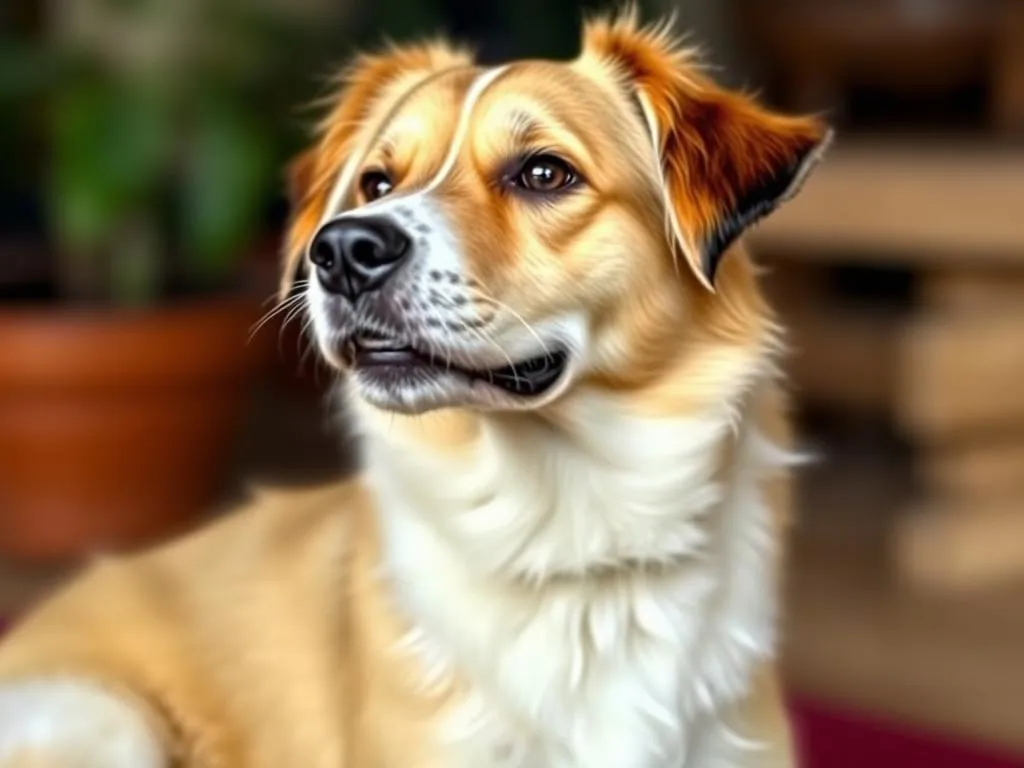
Choosing a name for your furry friend is often a heartfelt experience, filled with nostalgia and charm. There’s something uniquely endearing about old fashioned dog names that transports us back to simpler times, evoking images of loyal companions and classic tales. Names like Fido and Rover not only carry a sense of history but also create a bond between the dog and the owner, enhancing training and companionship.
The significance of selecting the right name extends beyond mere identification; it plays a vital role in how a dog perceives their owner and responds to commands. A well-chosen name can strengthen the connection between pet and owner, making training smoother and interaction more enjoyable. In this article, we’ll explore the delightful world of old fashioned dog names, their meanings, and tips on how to choose the perfect name for your new best friend.
Understanding Old Fashioned Dog Names
Definition of Old Fashioned Names
Old fashioned dog names are those that have stood the test of time, often evoking a sense of nostalgia. These names are typically classic, carrying a charm that modern names may lack. While contemporary dog names often draw inspiration from pop culture, food, or trends, old-fashioned names are rooted in tradition and history.
Names like Fido, Rover, and Spot have been popular for generations, representing a simpler era when dogs were seen as loyal companions and protectors. They harken back to a time when names reflected the character and purpose of the dog rather than fleeting trends.
Popularity and Trends
Interestingly, there has been a resurgence of vintage names in pet naming, reflecting a broader cultural trend towards nostalgia and authenticity. Data from pet naming surveys show that many people are gravitating towards old fashioned dog names as they seek to establish a deeper connection with their pets. For instance, a 2022 survey indicated that names like Daisy and Max have seen a significant uptick in popularity, signifying a growing appreciation for classic names among pet owners.
Categories of Old Fashioned Dog Names
Classic Names
Classic names often evoke memories of beloved pets from the past. Names such as Fido, Rover, and Spot have become synonymous with dogs themselves. These names emerged in literature and popular culture, becoming staples in households across generations.
- Fido: Traditionally associated with loyalty, this name stems from the Latin word “fidelis,” meaning faithful.
- Rover: Often used for dogs that love to roam, this name suggests a sense of adventure.
- Spot: A playful name often given to spotted dogs, it reflects their unique markings.
Names Inspired by Literature
Literature has always influenced pet naming, and many old fashioned dog names draw from iconic characters. These names can add a layer of personality and flair to your pet.
- Gatsby: Inspired by F. Scott Fitzgerald’s classic character, this name suits a dog with a larger-than-life personality.
- Daisy: Also from “The Great Gatsby,” this name is perfect for a sweet and gentle dog.
- Atticus: This name comes from Harper Lee’s “To Kill a Mockingbird,” ideal for a wise and noble dog.
Historical Names
Many old fashioned dog names are derived from historical figures who made significant contributions to society. These names not only hold history but also embody the characteristics of the individuals they represent.
- Winston: Named after Winston Churchill, this name is suited for a strong and resilient dog.
- Clara: A lovely name that can evoke the elegance of figures like Clara Barton, perfect for a gentle female dog.
- Theodore: This name, associated with Theodore Roosevelt, fits a dog with a bold and adventurous spirit.
Vintage Names from Different Cultures
Vintage names from various cultures can add an exotic flair to your dog’s identity. Each name carries its unique meaning and story.
- Greta: A name of German origin meaning “pearl,” ideal for a precious pup.
- Otto: This name means “wealth” or “prosperity” in German, suitable for a dog that brings joy and abundance.
- Enzo: An Italian name meaning “ruler of the estate,” perfect for a confident and dignified dog.
The Meaning Behind Old Fashioned Names
Symbolism and Heritage
Many old fashioned dog names carry cultural or familial significance. Some pet owners may choose names that honor their heritage, family traditions, or even their favorite historical figures. This connection can imbue the name with deeper meaning, serving as a reminder of one’s roots.
For example, naming a dog after a family member may strengthen the bond between the owner and their pet, while also keeping the memory of that loved one alive. Additionally, names that reflect cultural significance can celebrate diversity and promote a sense of belonging.
Personality Traits Associated with Names
Interestingly, certain names can often reflect a dog’s personality or breed characteristics. For example, a name like “Brutus” might evoke images of a strong and muscular dog, while “Lola” might better suit a playful and energetic pup.
Research indicates that names can influence perceptions. A dog named “Princess” may be treated with a bit more pampering than a dog named “Tank.” Understanding the personality traits associated with different names can help owners choose a name that truly reflects their furry friend’s nature.
Tips for Choosing the Right Old Fashioned Dog Name
Consider Your Dog’s Personality
When selecting an old fashioned dog name, consider your dog’s personality traits. Is your dog energetic and playful, or calm and regal? Matching a name to their demeanor can enhance their sense of identity.
For example, a spirited dog may thrive with a name like “Buster,” while a more composed dog might be better suited to “Eleanor.” Observing your dog’s behaviors and quirks can provide insights that lead to the perfect name.
Length and Pronunciation
The length and ease of pronunciation of a name are crucial factors to consider. Short, simple names are often more effective for training purposes. Names like “Max,” “Zoe,” and “Sam” are easy to call out and remember, making them ideal choices.
A name that is too long or complicated may confuse your dog during training sessions. Aim for a name that’s one or two syllables for the best results.
Avoiding Confusion with Commands
Another important consideration is to choose a name that doesn’t sound like common commands. For example, names like “Kit” or “Bit” might be confused with commands like “sit” or “stay.” Opt for a name that is distinct and won’t cause confusion during training.
How to Introduce Your Dog to Their New Name
Training Techniques
Introducing your dog to their new name requires patience and consistency. Begin by using the name frequently in a positive and engaging manner. Call your dog by their name when offering treats, during playtime, or when giving affection.
Using a cheerful tone can help your dog associate their name with positive experiences, making them more likely to respond when called.
Consistency is Key
Consistency is vital when teaching your dog their name. Ensure that all family members use the same name consistently to avoid confusion. Incorporating the name into daily routines can reinforce recognition and response.
Using the name in various contexts—such as during walks, play, or feeding—can help your dog learn to respond reliably.
Positive Reinforcement
Positive reinforcement is an effective method for training your dog to respond to their name. Whenever your dog responds to their name, reward them with treats, praise, or affection. This positive feedback will reinforce the behavior, making your dog more likely to respond in the future.
Real-Life Examples and Anecdotes
Interviews with Dog Owners
Many dog owners have fascinating stories about their experiences with old fashioned dog names. For instance, one owner named their dog “Winston” after a beloved grandfather, creating a heartwarming connection between family history and their pet. This name not only honors tradition but also adds a personal touch to their bond with their dog.
Another owner shared how naming their dog “Daisy” after a favorite childhood book character brought joy and nostalgia, enriching their experience as a pet parent.
Popularity Contest of Old Fashioned Names
Social media has played a significant role in the resurgence of old fashioned dog names. Platforms like Instagram and TikTok often showcase pets with charming vintage names, inspiring others to choose similar names for their dogs. Names like “Gatsby” and “Clara” have gained popularity, reflecting a trend that celebrates the uniqueness of each pet.
Conclusion
In summary, old fashioned dog names carry a timeless charm that resonates with pet owners seeking meaningful connections with their furry companions. From classic names like Fido and Rover to literary and historical inspirations, these names enrich the bond between owner and pet.
Choosing a name is more than just a label; it’s an opportunity to celebrate heritage, personality, and the unique relationship shared with a beloved dog. As you embark on the journey of naming your new companion, take the time to explore the myriad of options available and choose wisely. A name can become a cherished part of your dog’s identity, echoing through the years as a testament to the love and companionship you share.









